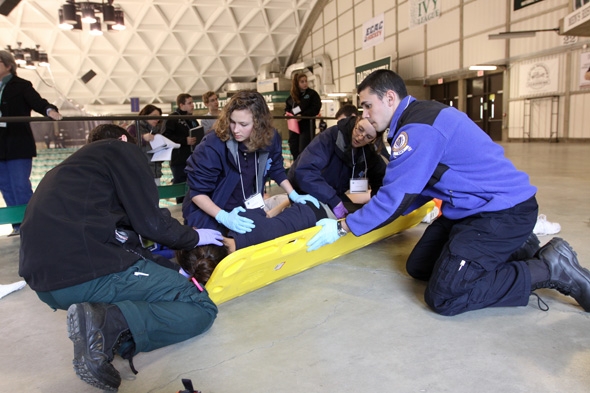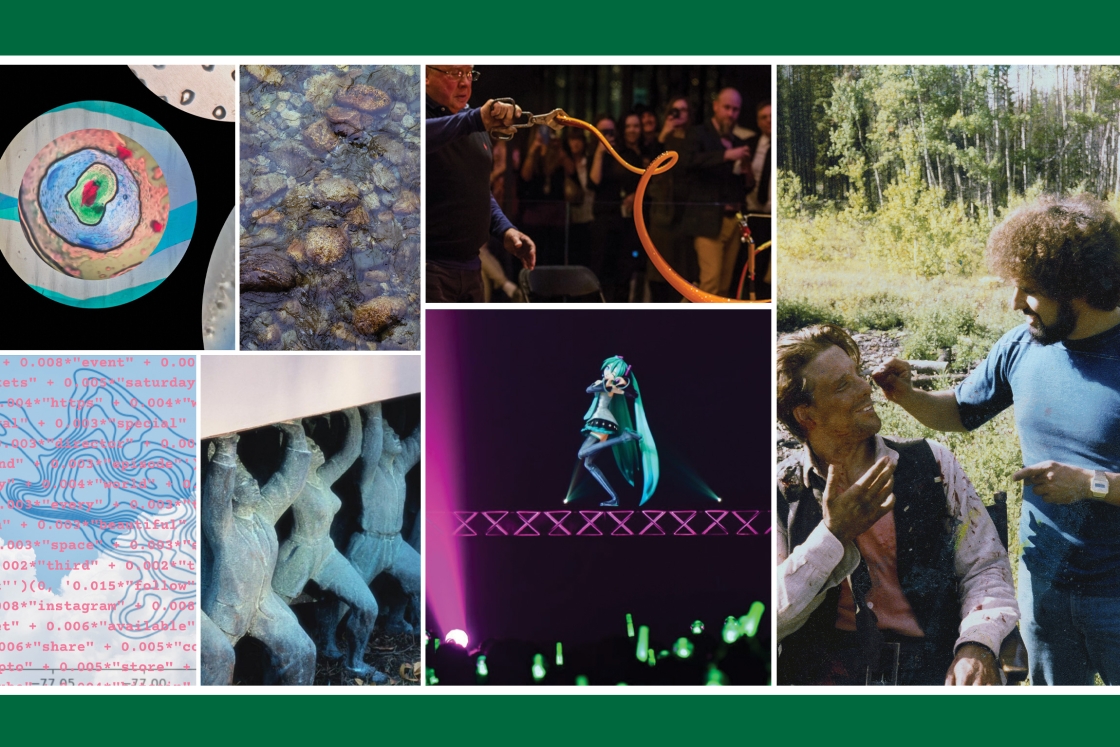If you experience a medical emergency on the Dartmouth campus, Nick Valentini ’13 might be the first responder coming to your aid. An undergraduate double-majoring in biology and government, Valentini is one of 50 volunteer members of the student-run Dartmouth Emergency Medial Services (EMS). While their career trajectories aren’t necessarily aimed at medical professions, the students are on the front lines of emergency response and take their responsibility very seriously.

This is the third year that Dartmouth EMS—a student-run squad—is hosting the regional training day and conference. During the conference, participants from nine collegiate EMS groups will take part in drills and training sessions, similar to the one pictured above. (Courtesy of Dartmouth Emergency Medical Services)
“In an emergency situation we respond and provide initial treatment and triage,” explains Valentini, noting that EMS volunteers assess whether a patient can be released or needs to be referred to Dartmouth-Hitchcock Medical Center for further care. “We work closely with the Department of Safety and Security to ensure student safety.”
Dartmouth EMS is a member of the Council of Student Organizations, and also works with the Dartmouth College Health Services. The group’s advisor is Rebel Roberts, from Safety and Security. Dartmouth EMS, which operates under New Hampshire state protocols and is certified under national standards, responds to approximately 215 calls annually. These range from small cuts and scrapes to major emergencies including traumatic injuries and cardiac arrest.
In addition to providing emergency medical services to the Dartmouth campus and standby coverage throughout the Upper Valley, Dartmouth EMS also engages in education and outreach. They offer training to the campus community and this weekend are hosting the Northern New England Collegiate EMS Regional Training Day for the third consecutive year.
Along with eight other collegiate EMS groups, Dartmouth EMS will participate in a mass casualty incident (MCI) drill and a variety of training sessions during the conference. “Significant incidents are rare, but when they do occur it is important that we be prepared,” says Ariel Low ’14, one of the conference coordinators. “The skills learned in the drill can be applied to the emergencies we respond to throughout the year.”
Low, an anthropology major with a double minor in biology and international studies, says she appreciates the opportunity Dartmouth EMS has given her to contribute to the community.
“Many people associate EMS with grisly traumas and doing CPR,” says Low. “We do go on calls like that, but what I love about EMS is the connection you make with the patient. We help make a difficult moment in their life a little brighter.”

